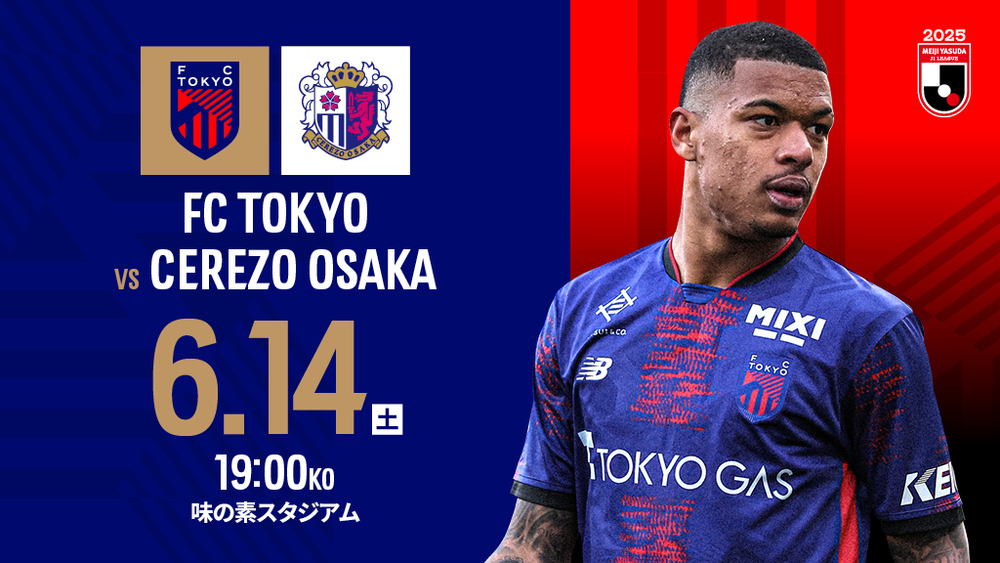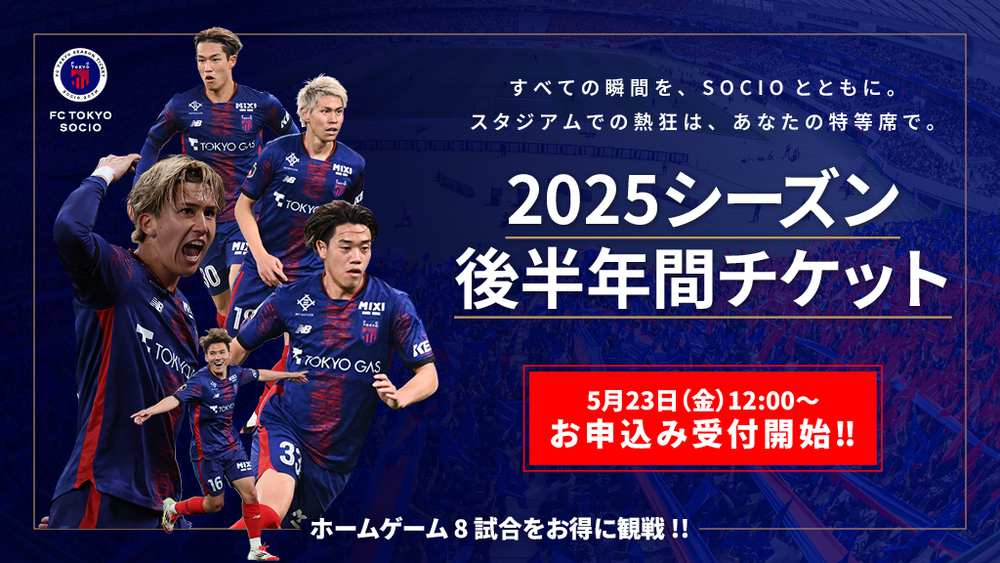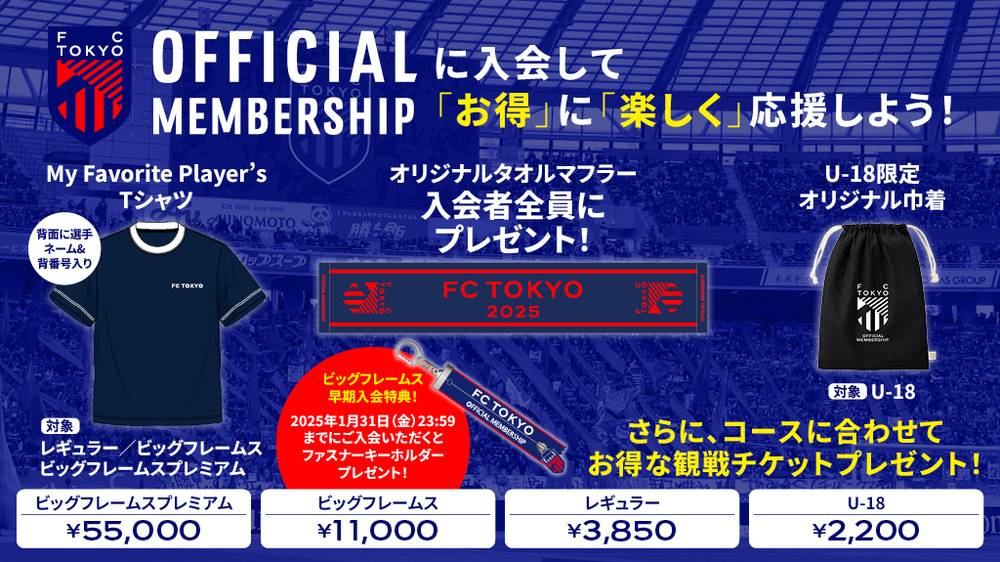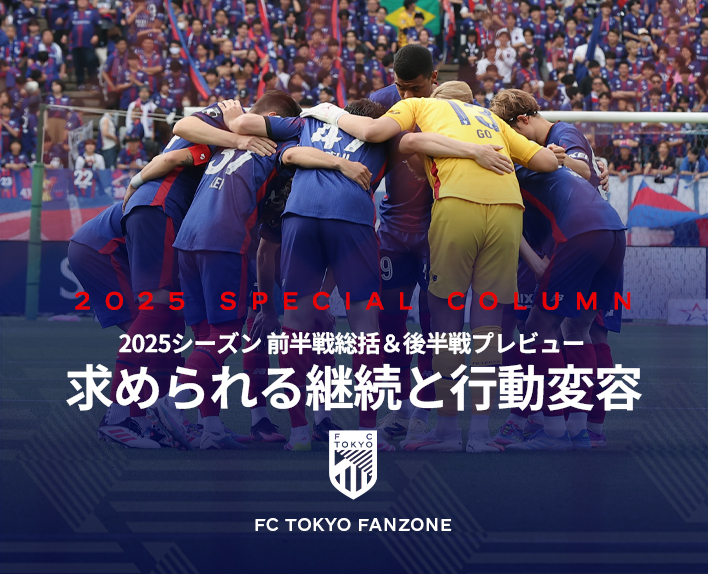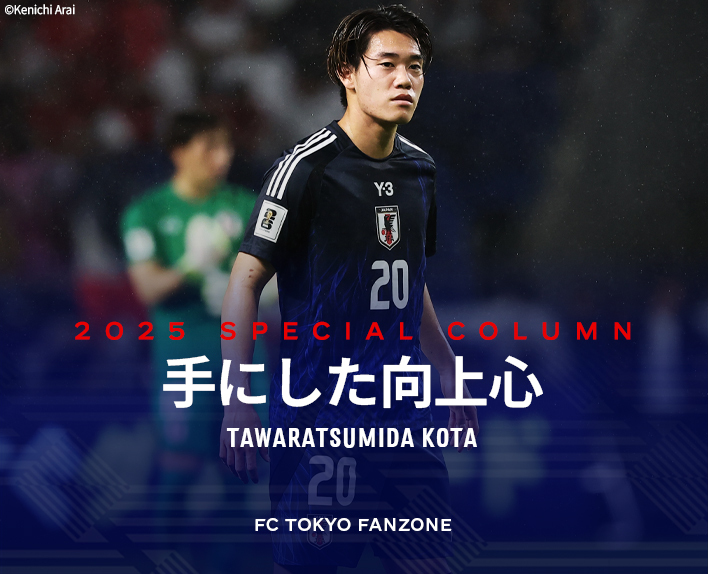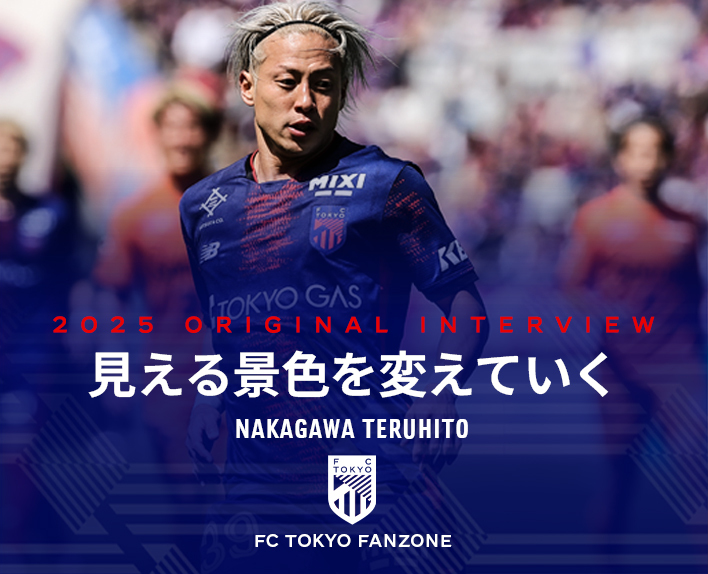This season, we welcomed new manager Rikizo MATSUHASHI and have been pursuing a unique identity true to our blue and red colors. The honest new manager is blending the style he has developed throughout his career with the players currently on the team. This initiative has begun, and we are approaching the midpoint of the season.
The 2025 Meiji Yasuda J1 League has completed 18 matches since the opening, with Tokyo positioned 18th with 5 wins, 4 draws, and 9 losses. The number of goals scored is 17, averaging 0.94 goals per match. Conversely, the number of goals conceded is 26, averaging 1.44 goals conceded per match. The numbers clearly reflect the tough battle being faced. Looking back on these 18 matches, many games in the early stages could have gone either way.
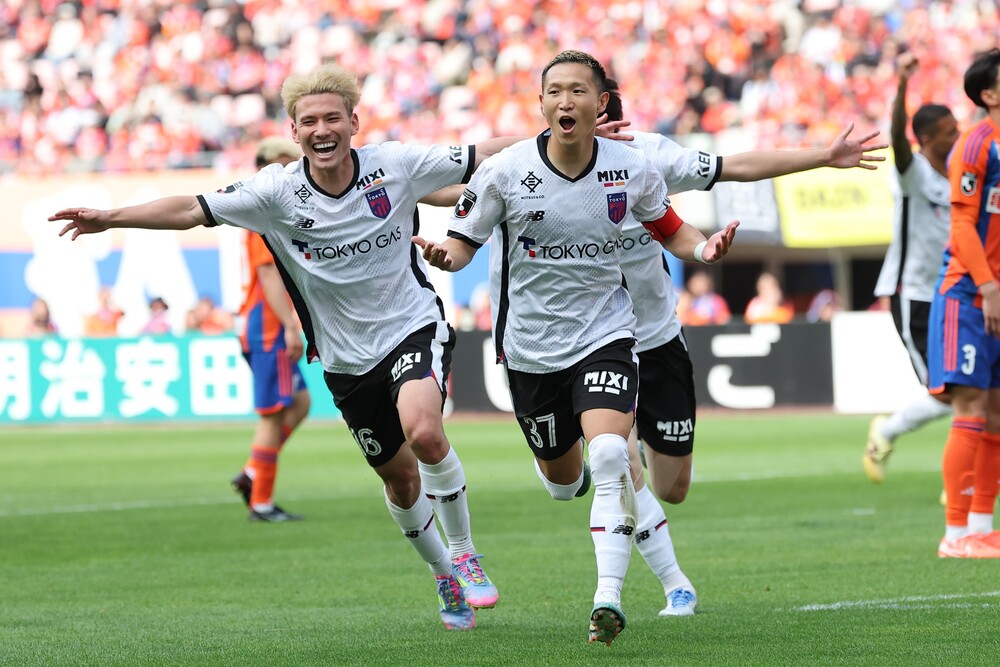
Among them, what had been accumulated sometimes suddenly appeared on the pitch. A good example was the Sec. 14 match against Albirex Niigata on May 3, which ended in a 3-2 victory. On that day, midfielder Kei KOIZUMI, who was deployed as a right wing-back, boldly shifted his position to the center, and in response, multiple players combined to score a beautiful goal. Coach Matsuhashi expressed it in these words.
"I think principles and fundamentals are very important, but being bound by them can prevent you from finding a good situation. It's strange to be restricted by 'this must be done' or 'this is absolutely the way here' or 'this is absolutely not allowed.' It's okay to break those rules. The only thing is, you have to make it successful. The more you focus on that, the slower the attack becomes, and even though you could defend, you fall back and let the opponent gain momentum."
However, it seemed like breaking through the shell but never quite succeeding. That frustration was always close by. There were many games where we created decisive chances but failed to finish, dropping points. Also, there were matches where we made uncharacteristic mistakes leading to goals against us, making the game difficult by our own hands. Sometimes, conceding a goal completely changed the mood of the game.
What happened at that time──. The coach describes it as "behavior changes." It was not the only match where, in the post-game press conference, the first thing he said was "too many kicks." The coach says, "Long balls are not evil, nor is connecting multiple short passes always the right way." He has repeatedly emphasized that making the correct decision according to the opponent's approach, the score difference, and the situation is what matters.
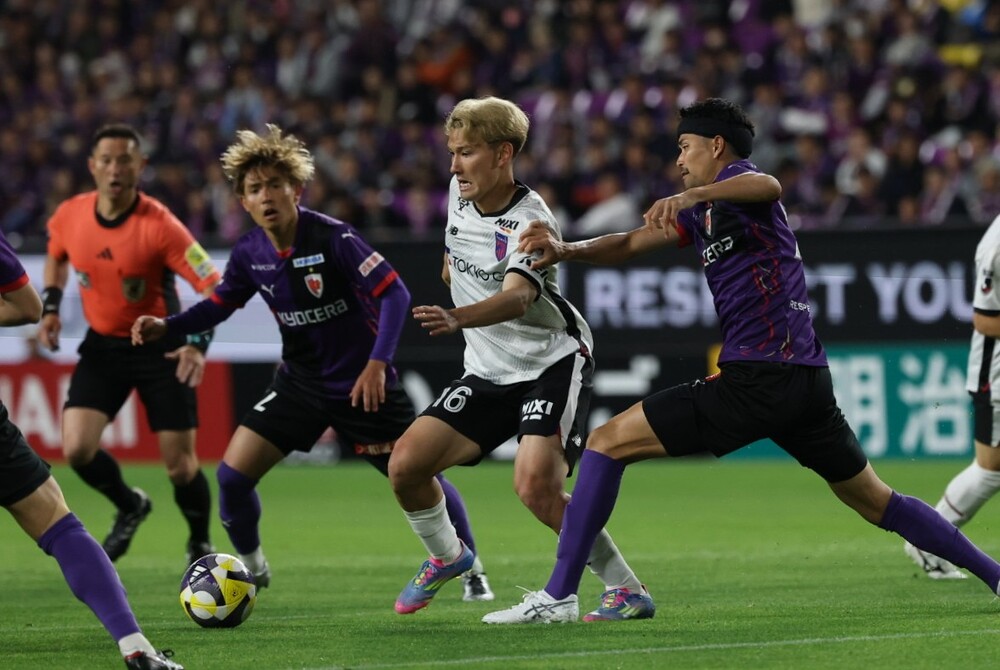
The Sec. 19 match against Kyoto Sanga F.C. on May 31, which was held recently, might have been a typical example of a game where such decisions were not made correctly. Kyoto, whose lifeline is intense pressing, was short of forwards that day due to injuries and suspensions. In fact, the opponent had to deploy a defender as a forward in the final stages of the match due to their own squad situation. Nevertheless, they were unable to move the ball in a way that would wear down the opponent's stamina from the early stages, and as a result, Kyoto's forward Shun NAGASAWA, who started as the lone striker, remained on the pitch until the 40th minute of the second half.
In the early stages of the match, there were effective moments when we targeted the space behind the opponent by taking advantage of their press. However, as the game gradually settled and the opponent began to set up defensively, we continued to kick long balls. Naturally, the second balls were picked up by the opponent, and we were drawn into their territory, conceding the opening goal. After that, in the final stages marked by increasing impatience, we conceded more goals and lost 0-3.
Having accepted the difficult situation, resolve is being tested. Especially when things aren't going well, it's easy to get distracted by this and that and lose sight of the right judgment. Coach Matsuhashi steadied himself and said this.
"If we try to do everything, our strengths won't come through easily. If things don't go well, it's easy to say this method doesn't work. I think that's a very shallow way of thinking. I can understand the idea of compromising to win. But everyone has followed me this far on the path I believe in. I have no intention of bending. I just have to think about what I can do to win. That doesn't mean denying what I've done. I believe there's no choice but to keep pursuing it."
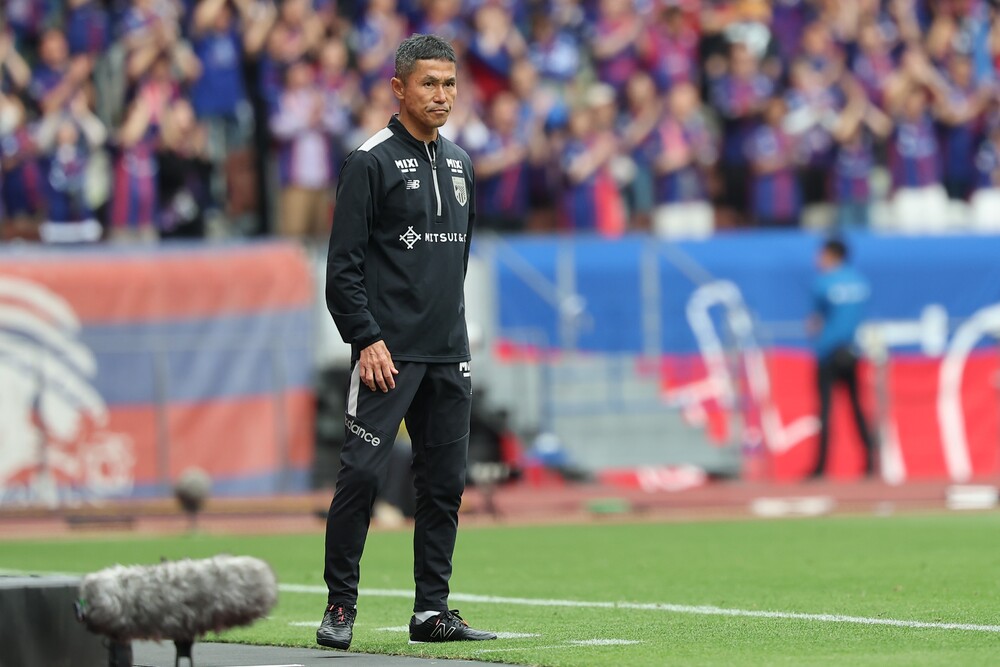
We have no intention of changing our policy of building a stronger team by accumulating training up to this point and bringing out the individuality of each player. Toward the comeback in the second half of the season, the coach repeatedly called out to the players, saying "to win."
"I want everyone to change at least one or two of their actions to win. It's not about chasing everything all at once. To change the future ahead, individual desires and determination are absolutely necessary. Without good habits, flowers will not bloom. Can you face yourself properly as an individual? I think it's impossible if you act out of self-preservation. Strong feelings about what you want to become as an individual will definitely show in your actions and words. As long as that part is solid, I truly believe we can become a good team."
In the match against Cerezo Osaka on June 14, marking the resumption of the league, the determination of the coach and players is expected to be displayed on the pitch.
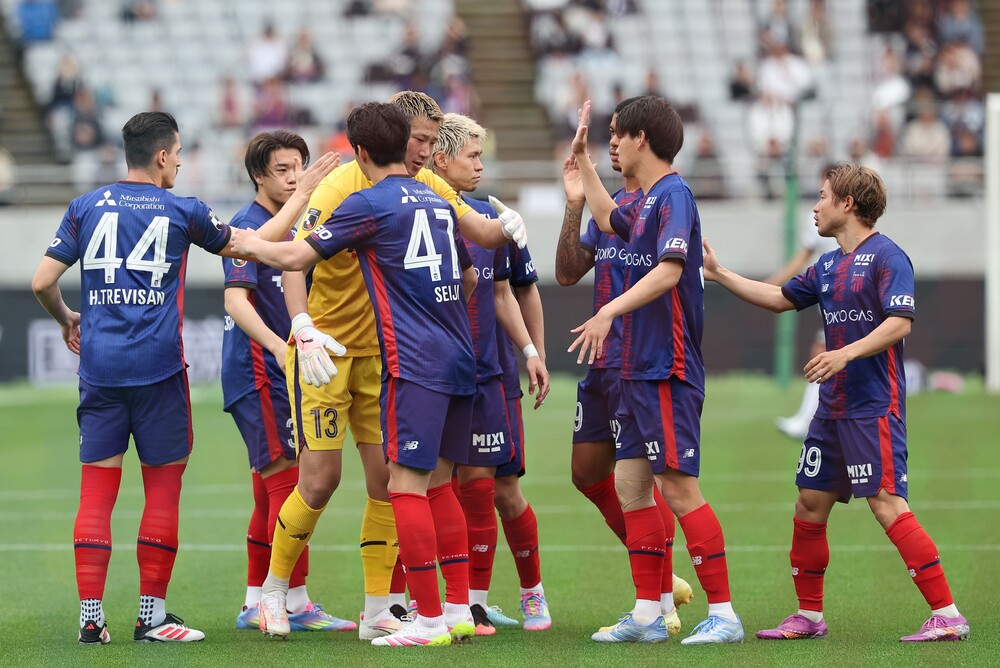
And when actions change, what needs to be done will naturally become clear. In fleeting moments, Coach Matsuhashi is always touching the ball. He laughs, saying "It's because of my bad foot habits," but that is also the truth of a footballer.
If you want to touch the ball more, you have to continue training so that the image of where you need to stand naturally comes to mind. By layering these efforts, a path leading to the goal should be created.
The same can be said about dealing with cross balls, which have been the cause of goals conceded in recent matches. Depending on how the ball holder controls the ball and the situation, the tactics against your mark and which space to cover are determined. The correct decision is always guided by the rolling ball.
The comeback of Rikizo Tokyo starts here.
(Honorifics omitted in the text)
Text by Tadashi BABA (Freelance Writer)
